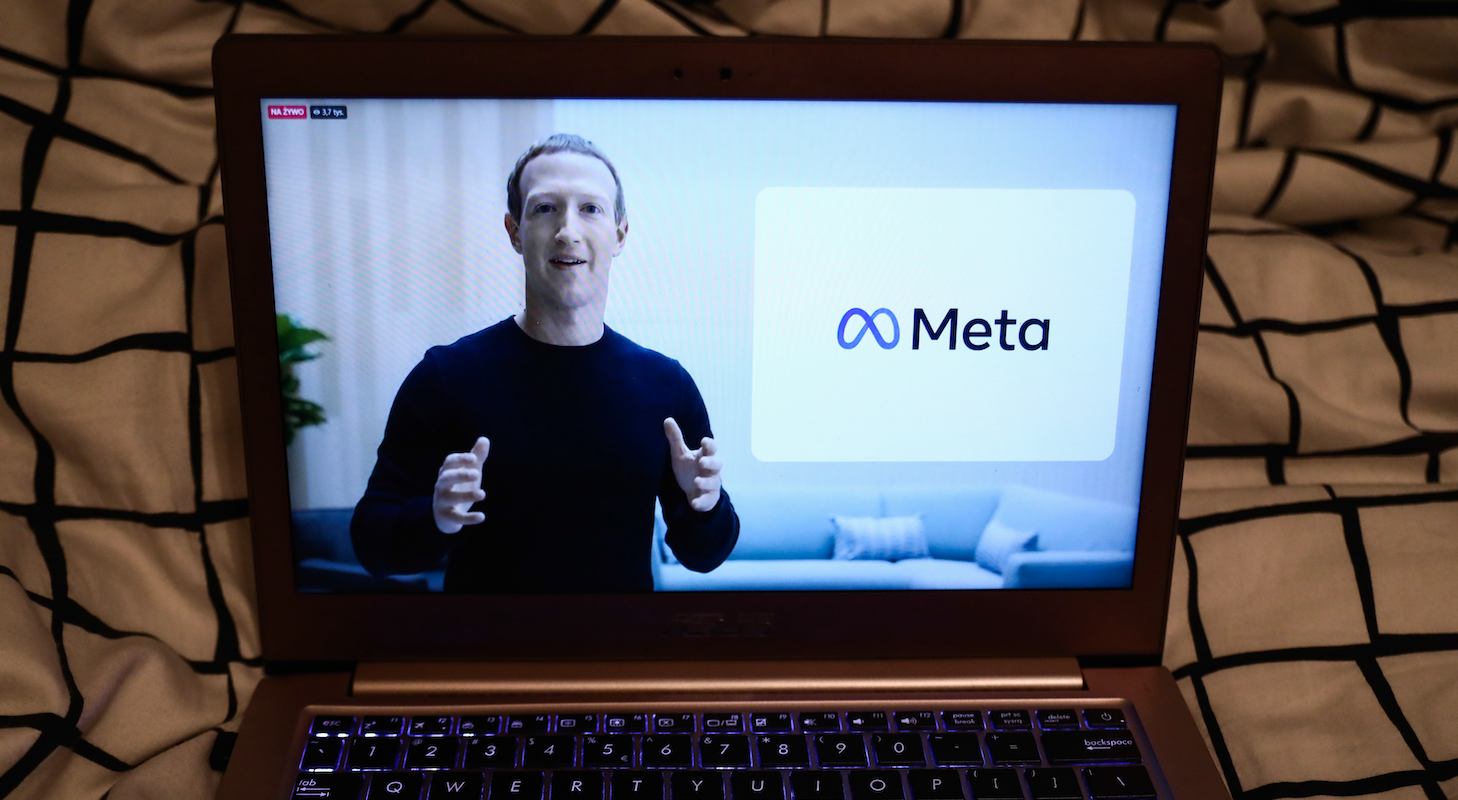Nobody much likes Horizon Worlds, the "flagship virtual reality game" (in The New York Times' phrasing) of Meta, the company that used to be called "Facebook" but now just owns Facebook.
Meta said in February that its Horizon Worlds game had grown to roughly 300,000 monthly active users—an increase from a few months earlier, but minuscule in comparison with Facebook’s more than 2.9 billion monthly active users. The company declined to provide more up-to-date figures for Horizon Worlds.
New York Times
For an extravagantly financed flagship online product of one of the world's richest and most powerful companies, 300,000 "monthly active users" is a pathetic count, roughly equivalent to zero in a world of eight billion people even before you get into the possible shadiness of "monthly active users," one of those weird latter-day metrics—does it count unique IP addresses? Devices? Sessions?—with a dubious relationship to any knowable number of actual human beings. For Meta, which over the past year-plus has put whole entire billions of dollars behind CEO/chairman/godhead Mark Zuckerberg's wager that "metaverse" (wearing the internet on your face) is the way of the future, this is an ominous portent. But also and more materially it is a big friggin' sinkhole that has already swallowed, like, a thousand times the total revenues of this website.
Which, first of all, ha ha ha ha ha! It is very funny when Zuckerberg and Facebook, operating under any name or brand, faceplant into a mountain of shit; the only good thing either of those entities can do with their essentially infinite wealth is lose it. If that were all The New York Times had to report in Sunday's delightful article about Meta's season of struggle, it'd be enough. There's other good stuff in there: A running conflict, for example, between John Carmack, the principal creator of some of the most influential video games ever made, who wants Meta to focus on the metaverse user experience, and some other executive bozo who, uh, "has approached it from a longer-term point of view with a focus on business opportunities," which I assume means sacrificing user experience for the sake of, uh, doing deals or something. Who knows.
Anyway here is my favorite part:
In September, Vishal Shah, the vice president in charge of Meta’s metaverse division, wrote on an internal message board that he was disappointed in how few Meta employees were using Horizon Worlds, according to a post obtained by The Times.
In his post, which was first reported by The Verge, Mr. Shah said that managers would begin tracking workers’ use of Horizon Worlds, and said that testing their own technology was essential.
“Why don’t we love the product we’ve built so much that we use it all the time?” Mr. Shah asked. “The simple truth is, if we don’t love it, how can we expect our users to love it?”
New York Times
There's a fun warping of causes and effects here that will be instantly familiar to anybody who has done much reading about authoritarian dictatorships and/or personality cults, or who enjoys scenes in spy comedies where the big bad villain starts laughing and then looks around menacingly at their underlings, who take this as a cue to also start laughing.
People do not like or want to play Horizon Worlds; the list of those who do not like it or want to play it includes many Meta employees. That is not what Mark Zuckerberg wants! Mark Zuckerberg wants people to like Horizon Worlds, to play it all the time, to get a taste of Meta's metaverse and never want to go back to the normal internet where Facebook and Instagram are lame dinosaur shit and his company is flailing for relevance among younger generations. Mark Zuckerberg wants to live in a world in which Horizon Worlds, and by extension Meta's other metaverse products, are successful and the billions he's poured into them amount to his having purchased the future. His underlings could set out to create that world by making Meta's metaverse stuff as popular as he wants it to be, but of course that is a huge and complex mission that already has torched the GDP of island nations without much to show for it, with no clear path to the destination but loads of peril along the way. For one thing the work would start by endeavoring to find out why nobody likes it, which might possibly reveal that Zuckerberg's vision is fundamentally boneheaded, that no critical mass of normal people shares his zeal for clamping the internet to one's head and getting vertigo just to shop for a salad bowl. Zuckerberg can simply fire and replace the next thousand suckers who report this finding to him, like Stalin erasing any underling who informed him that one of his armies was at risk of encirclement and must retreat.
For the sort of shameless, bootlicking striver who makes their way to the upper levels of such a hierarchy—and for the kind of salary such a stooge can bank by extending their employment in Meta's executive ranks a little longer—much, much simpler and less fraught is the work of simply furnishing the boss with the picture he'd like to look at. Zuck wants indices that people love Horizon Worlds. Simply order Meta's employees to play it a lot. Look at how much the staff loves Horizon Worlds, boss! Use among Meta employees is up 5,000 percent over last month! It's turning the corner! If the Potemkin metrics—"unique extant engagements per hour" or whatever—collapse a year from now, that's fine: By then Vishal Shah will have taken home more money than the average family makes in two lifetimes, thrice over.
None of this is to say that Meta's metaverse won't come to be. At high enough concentrations, wealth and power have a way of erasing, even if only temporarily, the distinction between prognostication and commandment: What the guy with all the money dreams, countless other people will strive to make real, if only because that's all you can get paid to do. It's very possible some kind of widespread metaverse adoption is as inevitable as our tech overlords want it to be; that someday not too far in the future, even if nobody particularly wants a face-mounted online and nobody has developed one that doesn't suck absolute shit, some eager-beaver sociopath will just unplug the older internet to make Mark Zuckerberg's visions into reality. So that you and I will have no choice but to adopt the new, to stagger around our living rooms dressed like Robocop merely to attend worse-looking virtual meetings in a 3DO-grade digital mall, and Zuck can avoid forever the horror of being told that he was wrong about something. This is why progressive tax codes and/or guillotines are very important.






